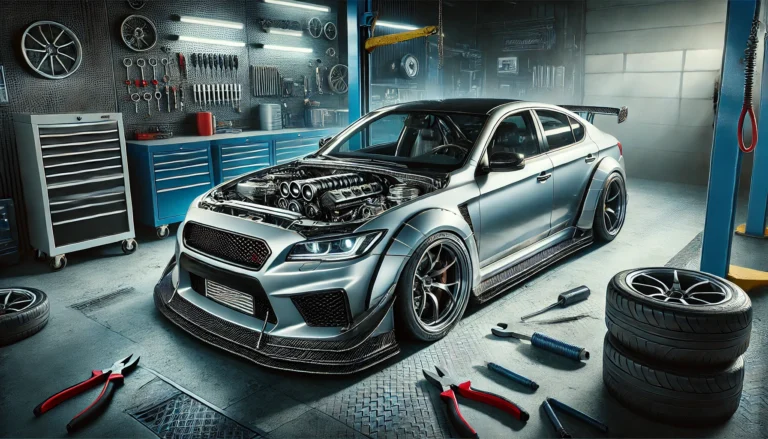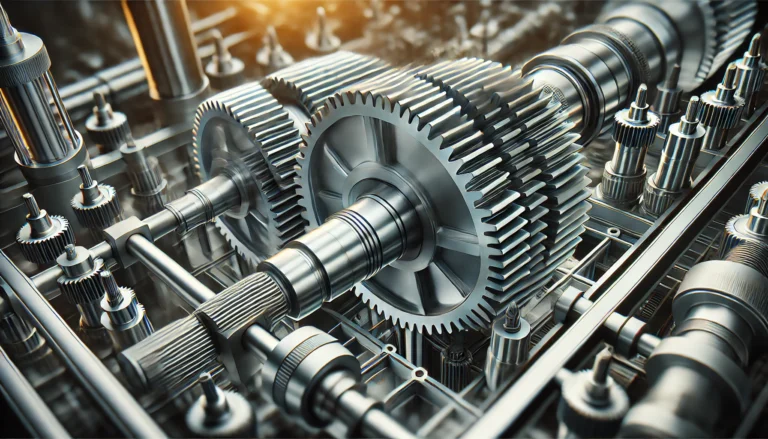Car tuning is more than a trend; it’s a way for car enthusiasts to personalize and boost their vehicles’ performance, look, and overall feel. Whether you’re curious about improving horsepower, refining the aesthetics, or enhancing the vehicle’s handling, car tuning opens up a world of possibilities to make a car truly your own. Let’s dive into what car tuning is, why it’s so popular, and how it works.
What is Car Tuning?
Car tuning refers to the process of modifying a car to improve its performance, appearance, or handling capabilities. While tuning has been around since cars first hit the roads, it has evolved tremendously, becoming a popular hobby and even a profession worldwide. In essence, tuning allows you to optimize your car beyond its factory settings, customizing it to suit personal needs, style, or intended use.
Types
Car tuning can be categorized into four primary types: performance tuning, aesthetic tuning, suspension tuning, and electronic tuning. Each offers unique ways to elevate the car’s performance and appearance, creating a customized experience for the driver.
Performance Tuning
Performance tuning is all about enhancing the car’s engine, power, and acceleration. This can involve:
- Engine Modifications: Altering components like the camshaft, air intake, and exhaust can boost horsepower and torque.
- Turbocharging and Supercharging: Adding a turbocharger or supercharger increases air intake, allowing the engine to burn more fuel and generate more power.
Aesthetic Tuning
Aesthetic tuning focuses on the visual aspects:
- Exterior Customization: This includes body kits, paint jobs, vinyl wraps, spoilers, and custom lights.
- Interior Customization: Changing seats, adding high-quality sound systems, and installing custom steering wheels can elevate the cabin’s look and feel.
Suspension and Handling Tuning
Tuning the suspension and braking systems improves handling and control:
- Suspension Upgrades: Lowering the suspension or adjusting it for stiffness can enhance the car’s performance, especially during cornering.
- Brake Enhancements: Upgrading to performance brakes allows for safer, faster stops, which is critical for high-speed driving.
Electronic Tuning
Modern vehicles come with sophisticated electronic systems that can be tuned for better performance.
- ECU Remapping: This software modification adjusts the engine’s control settings to increase power or efficiency.
- Aftermarket Tech Additions: Devices like performance chips and advanced monitoring systems provide better control over the car’s functions.
Why People Tune Their Cars
There are several reasons why enthusiasts invest in car tuning:
- Performance Enhancement: Many tune cars to achieve higher speeds, improved acceleration, and better handling.
- Aesthetic Appeal: Aesthetic tuning allows car owners to express personal style, creating a unique and eye-catching vehicle.
- Personalization and Uniqueness: Tuning enables drivers to build a car that reflects their personality, making it distinct from others on the road.
Popular Car Tuning Modifications
Some of the most sought-after modifications include:
- Engine Tuning: From cold air intakes to turbochargers, engine mods are favored for boosting power.
- Body Kits and Styling: Custom bumpers, spoilers, and skirts transform the car’s exterior look.
- Wheels and Tires: Bigger rims and high-performance tires enhance both appearance and road grip.
- Exhaust Systems: Upgraded exhaust systems can boost power and create a desirable engine sound.
Pros and Cons
Advantages
- Improved speed, performance, and control
- Enhanced aesthetics and uniqueness
- Potentially higher resale value for certain customizations
Disadvantages
- Can void the manufacturer’s warranty
- Higher insurance premiums
- Potential legal issues in certain regions
DIY Tuning vs. Professional Tuning

While many modifications can be done at home, professional tuning offers expert precision, particularly with complex changes:
- DIY Tuning: Cost-effective and allows enthusiasts to learn and experiment. Ideal for minor adjustments.
- Professional Tuning: Ensures top-quality results and can handle complex changes like ECU remapping and turbo installations.
Car Tuning Legalities
It is regulated differently around the world. Common restrictions include:
- Noise Limitations: Modified exhausts that exceed noise limits may not be street-legal.
- Emissions Standards: Some performance modifications can increase emissions, which is illegal in certain places.
How Car Tuning Affects Car Value
While certain modifications can raise a car’s value, not all modifications are seen as desirable:
- Positive Impact: High-quality aesthetic and performance upgrades may appeal to buyers looking for unique cars.
- Potential Drawbacks: Some modifications could deter buyers or reduce resale value due to changes in fuel economy or potential wear.
Car Tuning Costs
The cost of tuning can vary widely:
- Basic Aesthetic Mods: Around $500 for cosmetic changes like decals and small body parts.
- Performance Upgrades: Performance chips can start at around $500, while turbo installations cost thousands.
Choosing the Right Car for Tuning
Certain cars are especially popular for tuning due to their versatile and robust engines:
- Japanese Imports: Models like the Nissan GT-R and Subaru WRX are widely used for performance tuning.
- American Muscle Cars: The Ford Mustang and Chevrolet Camaro are ideal for power upgrades.
Performance Tuning vs. Aesthetic Tuning
Performance and aesthetic tuning cater to different goals:
- Performance Tuning: Focused on speed, handling, and power.
- Aesthetic Tuning: Dedicated to looks, style, and uniqueness.
Maintenance After Tuning
Regular maintenance is essential to keep a tuned car in top shape:
- Engine Check-Ups: Regular inspections ensure the engine remains efficient and safe.
- Suspension and Brake Care: Tuning often strains these components, making upkeep critical.
Trends
Current tuning trends emphasize sustainability and tech enhancements:
- Eco-Friendly Mods: Electric and hybrid conversions are rising in popularity.
- Advanced Electronics: Digital displays and tech upgrades make cars more user-friendly and adaptable.
Conclusion
Car tuning is an exciting world for enthusiasts looking to personalize and maximize their vehicles. Whether for speed, style, or handling, tuning a car lets you drive something that truly feels like yours. With the right knowledge, a tuned car can become a thrilling reflection of both form and function, offering a unique driving experience.
FAQs
Is car tuning safe?
Yes, if done correctly and within legal limits, car tuning can be safe. It’s essential to use quality parts and ensure modifications are professionally installed.
What is the best car for tuning?
Popular models include the Nissan GT-R, Subaru WRX, Ford Mustang, and Honda Civic, all known for their tunable engines and performance flexibility.
How much does it cost to tune a car?
Basic modifications may cost around $500, while extensive tuning, like turbocharging, could reach several thousand dollars.
Can car tuning improve fuel efficiency?
Some tuning modifications can enhance fuel efficiency, but most performance modifications may decrease it as they prioritize power over efficiency.
What are some popular car tuning brands?
Popular brands include HKS, Greddy, and AEM for performance parts, while companies like Eibach and Bilstein are renowned for suspension upgrades.








